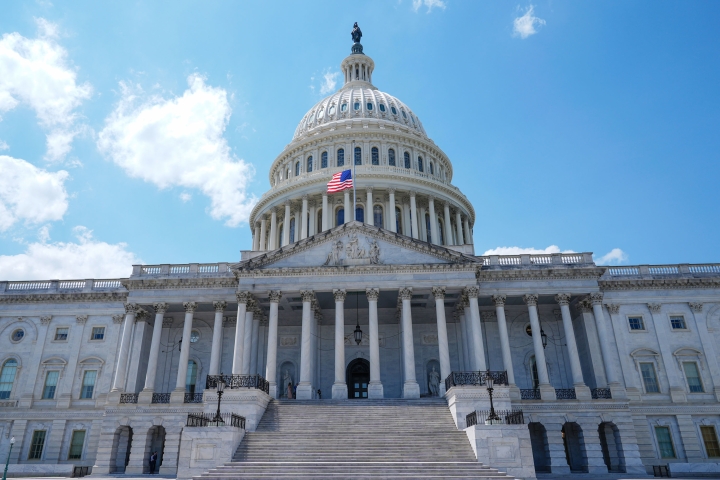A new, online tool—America’s Political Pulse—developed by the Polarization Research Lab is tracking the rhetoric and actions of all 535 members of the U.S. House of Representatives and Senate.
And while a majority of Americans have long held a negative view of Congress as a whole, the online tracker finds that the House and Senate may have more workhorses than showboats.
Updated daily, the dashboard tracks, analyzes, and catalogs all public statements in real-time by members of Congress, including Twitter/X posts, newsletters, press releases, and floor speeches, using artificial intelligence models. More than 1.5 million data points dating back to Aug. 31, 2022, have been analyzed to date.
Public statements are classified into five categories: personal attacks, policy discussion, constructive debate, accomplishments, and bipartisanship/compromise.
Users can run searches by category, legislator, or state, and filter results by party, as well.
According to America’s Political Pulse, 66 members of Congress, or 12.2%, have never insulted anyone during the current Congress, while 350, or 64.8%, have done so in less than 1% of their communication.
“What we’ve identified is that there are a lot of members of Congress who are showing up and doing their jobs and engaging in meaningful debate and they’re not getting the attention they deserve,” says Sean Westwood, director of the Polarization Research Lab and an associate professor of government at Dartmouth. “What is instead happening is that firebrands are absorbing all of the media attention.”
“Our data show that Congress is not nearly as dysfunctional or polarized as people may think,” says Westwood.
The Polarization Research Lab is also studying Americans’ attitudes on key issues leading up to and following the presidential election in November through a monthly report series, The Path to 2024.

